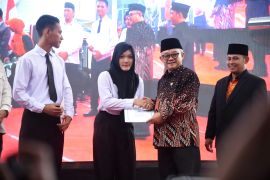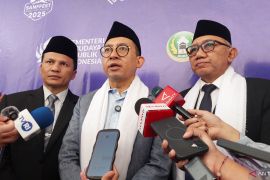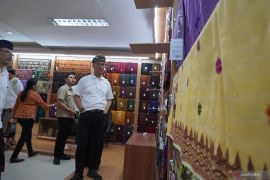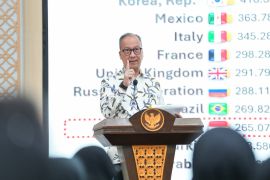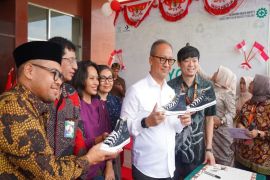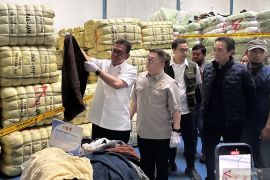The minister, who was conducting a business visit to Japan last weekend, was accompanied by Indonesian Ambassador to Japan Arifin Tasrif when he made the visit to the Tsukiji market in Tokyo, which is quite famous in the world.
"The fishing industry business in Japan has a large turnover and can be an example for development in Indonesia," Hartarto stated in a written statement in Jakarta over the weekend.
Tsukiji market began operation in 1935 and is the oldest seafood and wholesale center among the 11 markets in Tokyo metropolitan wholesale center.
Every day, fish sale in Tsukiji reaches 2,167 tons, with value amounting to 1.77 billion yen.
Previously, Hartarto noted that he would study and find a way to tackle obstacles in the development of the fishing industry in the country, especially for the supply of raw materials, facilities and infrastructure, and policies and regulations.
"Our shrimp exports are very good. There are other industries that are already advanced in the export market in the field of processing food, including those in fresh and canned fish," he revealed.
Based on the records of the Ministry of Industry, the fish processing industry in Indonesia consists of 636 large scale Fishing Enterprises (UPI) and 36 thousand small-scale UPI or households with simple technology.
One of the fish processing industry sector that has relatively been developed in Indonesia is the fish canning industry. In 2015, the industry reached 41 companies, with a total employment of 46.5 thousand people and an investment of Rp1.91 trillion.
The installed capacity of the industry reached 630 thousand tons, with a production value of 315 thousand tons. Meanwhile, the value of fish export in cans reached US$26 million, while the value of imports reached $1.6 million.(*)
Editor: Heru Purwanto
Copyright © ANTARA 2017
